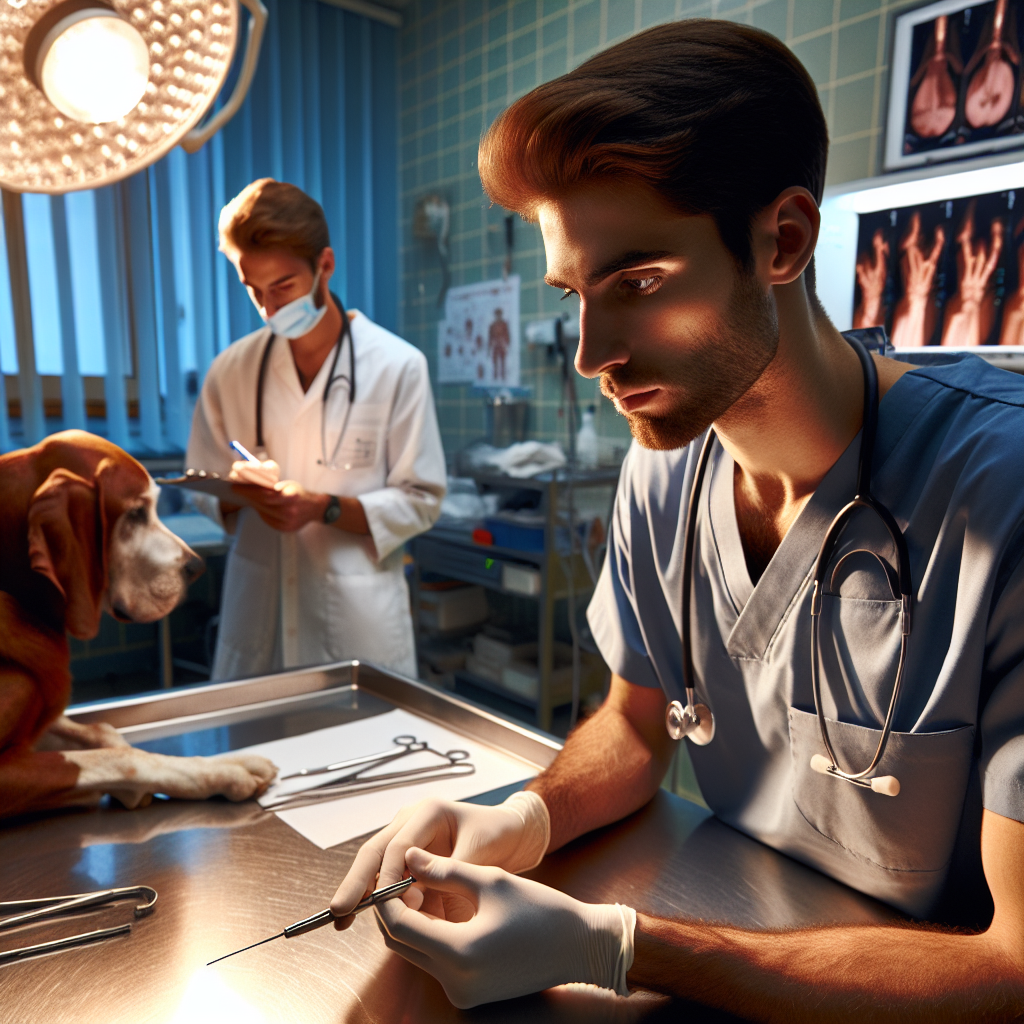The Essential Guide to Managing Anesthesia-Related Diarrhea in Dogs5 min read

As a dog owner, seeing your furry friend experience diarrhea after undergoing anesthesia can be worrying. Understanding the potential causes and proper management techniques is crucial for ensuring a smooth recovery. This comprehensive guide provides veterinary insights on monitoring and treating post-anesthesia digestive issues in dogs, helping you navigate this challenging aspect of pet care with confidence.
Why Does Anesthesia Cause Diarrhea in Dogs?
Anesthesia can disrupt a dog’s normal digestive function through several mechanisms. The drugs used during anesthesia can alter gut motility, leading to changes in the speed and consistency of bowel movements. Additionally, the stress of the surgical procedure itself can contribute to gastrointestinal upset.
Effects of Anesthetic Drugs on Digestion
Many anesthetic agents, such as opioids and anticholinergics, can slow down the movement of the digestive tract. This reduced motility allows more time for water absorption, resulting in drier, harder stools. On the other hand, some anesthetics may cause increased motility, leading to loose or watery stools.
Stress-Induced Gastrointestinal Changes
The physical and emotional stress of undergoing surgery can trigger the release of stress hormones like cortisol. These hormones can disrupt the balance of gut bacteria and alter intestinal function, potentially leading to diarrhea. The unfamiliar hospital environment and changes in routine can also contribute to a dog’s stress levels.
Monitoring Your Dog’s Digestive Health Post-Anesthesia
Closely monitoring your dog’s digestive health after anesthesia is essential for identifying and addressing any issues promptly. Keep track of your dog’s bowel movements, noting changes in frequency, consistency, and color. Report any concerns to your veterinarian for guidance.
Signs to Watch For
- Loose or watery stools
- Increased frequency of bowel movements
- Straining or discomfort during defecation
- Blood or mucus in the stool
- Loss of appetite or vomiting
Maintaining Hydration
Diarrhea can quickly lead to dehydration, especially in post-surgical patients. Ensure your dog has access to fresh, clean water at all times. If your dog is reluctant to drink, offer small amounts of water frequently or consider using a pet-safe electrolyte solution as directed by your veterinarian.
Treatment Options for Post-Anesthesia Diarrhea
The appropriate treatment for post-anesthesia diarrhea depends on the severity and underlying cause. Your veterinarian will assess your dog’s condition and recommend a tailored treatment plan. Some common approaches include:
Dietary Modifications
Temporarily switching to a bland, easily digestible diet can help soothe the digestive tract and promote normal bowel function. Your veterinarian may recommend a prescription diet or provide instructions for preparing a homemade bland diet using ingredients like boiled chicken and rice.
Probiotics and Digestive Supplements
Probiotics help restore the balance of beneficial gut bacteria, which can be disrupted by anesthesia and antibiotics. Adding a veterinarian-recommended probiotic supplement to your dog’s diet can support digestive health and regulate bowel movements. Other digestive supplements, such as glutamine and slippery elm, may also be beneficial.
Medications for Symptom Management
In some cases, your veterinarian may prescribe medications to manage diarrhea and its associated symptoms. Anti-diarrheal agents like loperamide can help reduce the frequency and volume of bowel movements. If your dog is experiencing significant discomfort or abdominal pain, your veterinarian may recommend a safe and effective pain relief medication.
Supporting Your Dog’s Recovery at Home
Creating a comfortable and stress-free environment at home is crucial for your dog’s post-anesthesia recovery. Provide a quiet, cozy space for your dog to rest and recover. Stick to a consistent routine for feeding, walks, and bathroom breaks to help regulate bowel movements.
Gradual Reintroduction of Regular Diet
Once your dog’s diarrhea has resolved, gradually transition back to their regular diet over several days. Mix increasing amounts of their normal food with the bland diet to allow their digestive system to adjust. If diarrhea recurs during this transition, consult your veterinarian for further guidance.
Ongoing Monitoring and Communication with Your Vet
Keep your veterinarian informed about your dog’s progress and any new or persistent symptoms. Attend all scheduled follow-up appointments and don’t hesitate to reach out with any concerns or questions. Your veterinarian is your partner in ensuring your dog’s successful recovery and long-term digestive health.
Frequently Asked Questions
How long does post-anesthesia diarrhea usually last in dogs?
The duration of post-anesthesia diarrhea can vary depending on the individual dog and the specific anesthetic protocol used. In most cases, diarrhea should resolve within a few days with appropriate management. However, if diarrhea persists or worsens, it’s important to consult your veterinarian for further evaluation and treatment.
Can post-anesthesia diarrhea be prevented?
While it may not be possible to completely prevent post-anesthesia diarrhea, there are steps that can be taken to minimize the risk. Your veterinarian will carefully select anesthetic drugs and dosages based on your dog’s individual needs and health status. Providing a calm, stress-free environment before and after the procedure can also help reduce the likelihood of gastrointestinal upset.
When should I be concerned about my dog’s post-anesthesia diarrhea?
Contact your veterinarian if your dog experiences severe or persistent diarrhea, blood or mucus in the stool, vomiting, lethargy, or loss of appetite. These symptoms may indicate a more serious underlying issue that requires prompt veterinary attention. Additionally, if your dog shows signs of dehydration, such as sunken eyes, dry mouth, or reduced skin elasticity, seek veterinary care immediately.
Conclusion
Managing post-anesthesia diarrhea in dogs requires careful monitoring, appropriate treatment, and a supportive home environment. By understanding the potential causes and following your veterinarian’s guidance, you can help your furry friend navigate this challenging aspect of post-surgery care. Remember, every dog’s recovery journey is unique, and patience and compassion are key.
With the right knowledge and care, you can support your dog’s gastrointestinal health and ensure a smooth recovery from anesthesia. Trust your veterinarian’s expertise and don’t hesitate to ask questions or voice concerns. Together, you can help your beloved companion bounce back and enjoy a happy, healthy life by your side.
